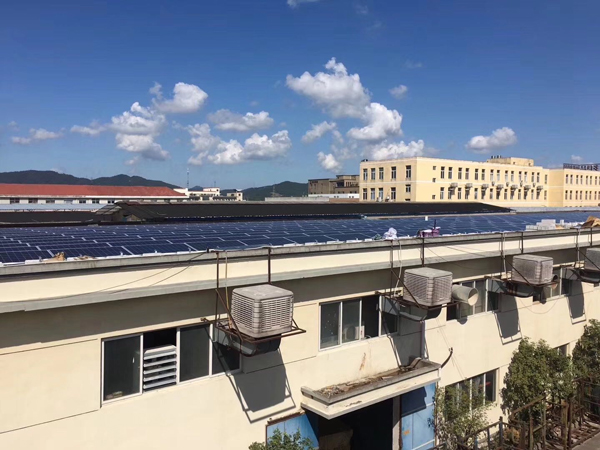Flat roof solar racking is a structural rack specially used for flat roof photovoltaic installation. It’s made of lightweight, strong, and durable materials that can carry solar panels, inverters, cables, and other accessories. The angle and direction of installing solar panels can also be adjusted according to the location and sunlight angle.
Compared with traditional flat roof installation, flat roof solar racking has the following advantages:
First, it is more economical and efficient in terms of solar power generation and space utilization. The angle and direction at which solar panels are installed can be precisely adjusted to maximize sunlight capture and power generation. Compared with ground photovoltaic systems, it does not require occupying valuable land resources and is suitable for situations where photovoltaic systems need to be established in limited spaces.
Secondly, flat roof solar racking is more adaptable. It is suitable for use on all types of roofs, including commercial buildings, factories, warehouses and residences. Most of the time these buildings have flat roofs, but at varying angles and heights. Flat roof solar racking takes these differences into account and can be customized to meet the needs of different roof sizes and shapes. Moreover, flat roof solar racking can also be used as a temporary solution for those occasions where emergency photovoltaic installation is required.
In addition, flat roof solar racking is easy to install and maintain. Thanks to its lightweight materials and modular design, this structural bracket can be quickly assembled and disassembled. At the same time, it can also ensure the normal operation of the photovoltaic system through regular inspection and maintenance.

Flat roof solar racking leads the innovation of rooftop photovoltaics
